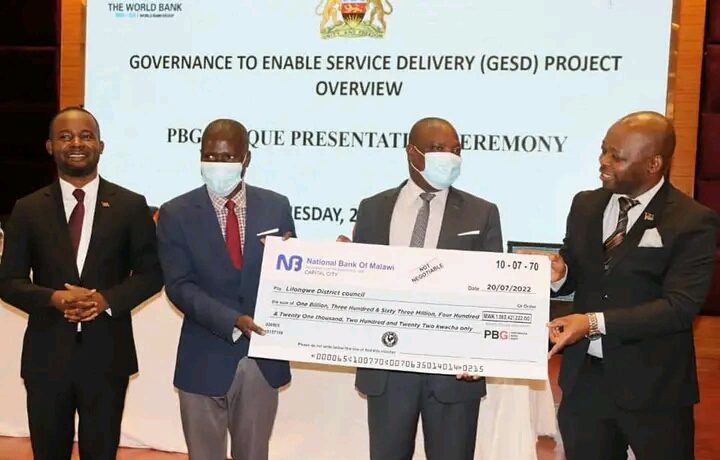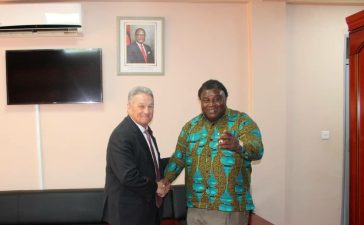25 performing district councils have today been rewarded for their hard work and innovations with development grants in the 2022/23 financial year as one way of improving service delivery in local authorities.
Ironically, Blantyre, Neno and Ntcheu districts have failed to meet the threshold and have missed out of the K14.9 billion development cake while Mulanje, Balaka and Lilongwe were the best three performers last year.
Speaking on the sidelines of the award Governance to Enable Service Delivery (GESD) project coordinator Charles Chunga said PBG has increased resources for local authorities to implement more development projects for people to enjoy improved service delivery.
“The grants provide broadly discretionary resources for councils to finance prioritised development investments that are resilient and enhance public services. PBG is aligned to District Development Funds (DDFs) and they are having money enough to implement more projects identified in District Development Plans (DPPs).
“Last year, with K4.9 billion, district councils implemented 142 state-of-the-art projects. We expect more projects to be done this year as we will give about K14.9 billion,” said Chunga
Meanwhile Minister of Local Government Blessings Chinsinga and Minister of Finance and Economic Affairs Sosten Gwengwe officially handed out the cheques to the deserving councils.
Councils use the funds to implement projects in sectors of water and sanitation, education, health, agriculture and environment, roads, commercial services, and community security.
PBG is a was introduced by Government and is being implemented in all the 28 local authorities to provide them an opportunity to significantly increase their access to development resources for public investments based on achievement of results.
The National Local Governance Finance Committee, in conjunction with the Ministries of Local Government and Finance, are implementing the US$100 million funding from the World Bank.’













